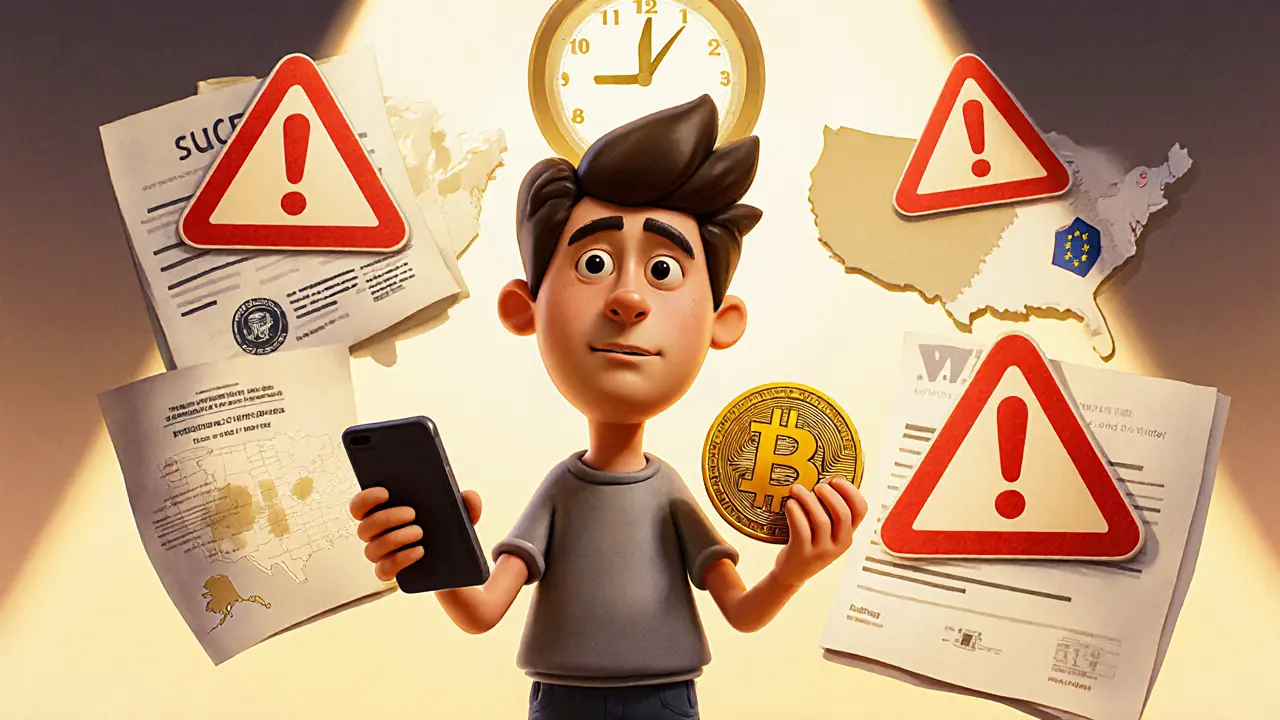Crypto Laws: What You Need to Know About Global Regulations and Risks
When it comes to crypto laws, the rules governing how you buy, hold, trade, or mine cryptocurrency. Also known as cryptocurrency regulation, it’s not just about taxes—it’s about whether your coins can be seized, your exchange banned, or you face jail time for using the wrong platform. There’s no global rulebook. What’s legal in Portugal—where holding Bitcoin over a year means zero tax—is illegal in Angola, where the government seized mining rigs and jailed operators to save electricity for hospitals.
These laws don’t exist in a vacuum. They’re shaped by asset forfeiture, when governments take your crypto without a conviction. The U.S. alone has built a $17 billion Strategic Bitcoin Reserve by confiscating coins from criminals, scams, and sanctioned entities. Meanwhile, crypto sanctions, like those against Cuba or Russian exchanges like Garantex, turn simple trades into legal risks. If you’re in a sanctioned country, even using Changelly Pro could land you in trouble—despite its clean reputation elsewhere.
And it’s not just governments. Your choice of exchange can make you a target. Platforms like SkullSwap or Blockfinex aren’t just risky because they’re poorly built—they’re risky because they operate in legal gray zones. No audits? No licenses? That’s a red flag not just for security, but for compliance. In places like the U.S. and U.K., using unlicensed exchanges can trigger reporting requirements, fines, or worse. Meanwhile, privacy coins like Monero and Zcash walk a tightrope: they protect financial freedom for journalists and people in high-inflation economies, but they’re also the first targets for regulators worried about money laundering.
Then there’s the money side. crypto taxes, how governments track and charge you on gains, airdrops, and staking rewards. Portugal lets you hold crypto tax-free after a year. Other countries tax every trade like a stock sale. Even claiming a free airdrop—like SUNI or CHIHUA—can trigger a tax event you didn’t know about. Ignoring this isn’t ignorance; it’s a legal gamble. These aren’t abstract rules. They’re real. They affect whether you can withdraw your coins, if your wallet gets frozen, or if you’re forced to choose between your assets and your freedom.
What you’ll find below isn’t just a list of articles. It’s a practical map of where crypto laws are active, who’s enforcing them, and how they’re changing the game for everyday users. From the ban on mining in Angola to the collapse of Levana Protocol under regulatory pressure, these posts show you exactly where the lines are drawn—and how to stay on the right side of them.
Staying Informed About Changing Crypto Regulations Worldwide
Crypto regulations are changing fast in 2025-with the U.S. easing enforcement, the EU enforcing MiCAR, and Asia leading innovation. Know what’s legal, where, and how to stay compliant without getting caught in the crossfire.
